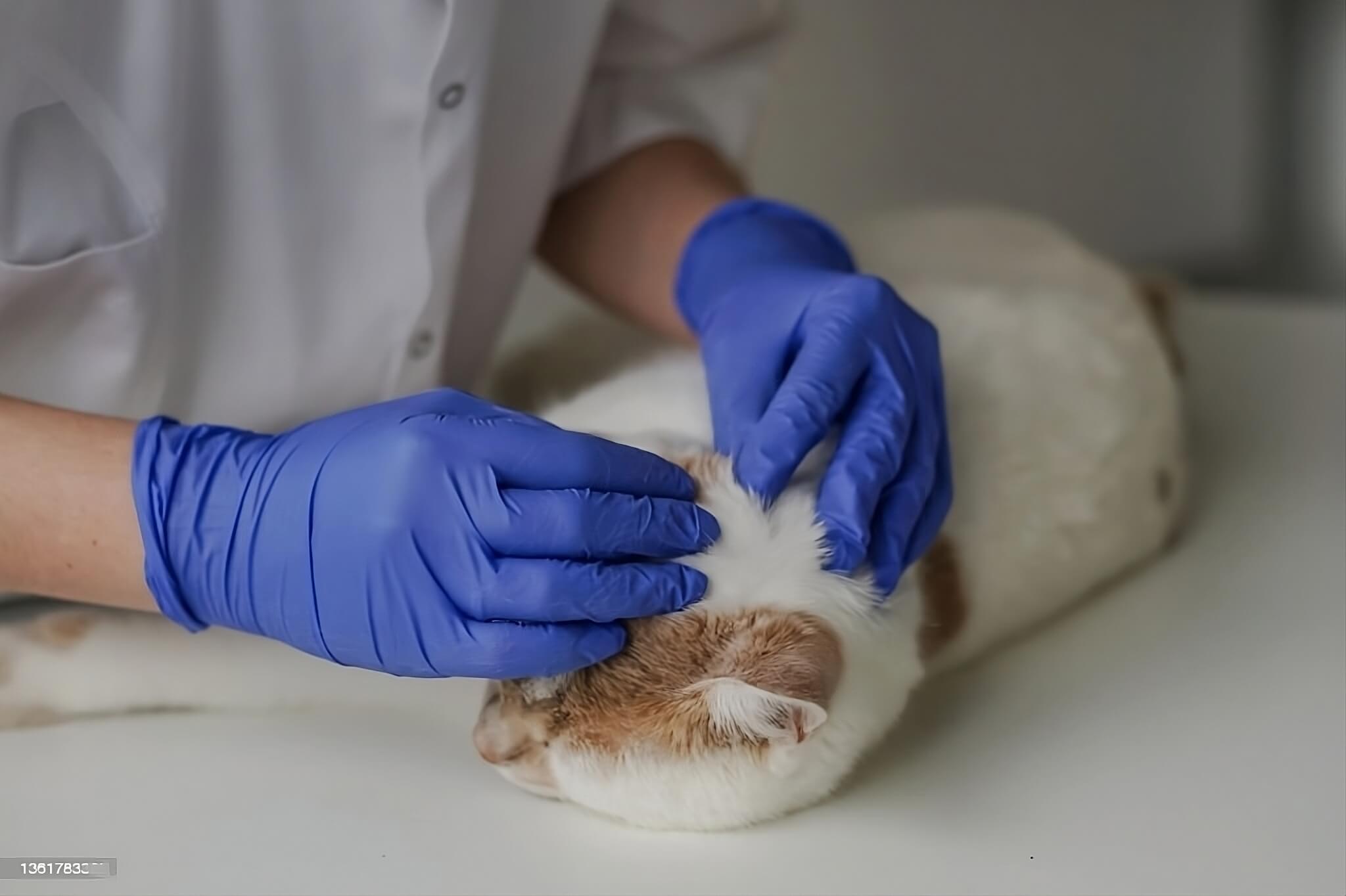Fleas, ticks, and worms are parasites that can easily infect your pet. The symptoms vary depending on the type of parasites; here are just a few:
Treating emerging diseases is often expensive and labor-intensive, making timely prevention against parasites crucial.
- External: itching, dermatitis, hair loss.
- Internal: vomiting, diarrhea, coughing, heart function impairment, general health deterioration.
Treating emerging diseases is often expensive and labor-intensive, making timely prevention against parasites crucial.
Main Types of Parasites:
Fleas: Adults and larvae do not live on animals. They can inhabit furniture and cracks in your home or apartment. Also, stray animals can infect household pets.
Worms: They live in soil, grass, and puddles. Infection occurs through consuming grass, soil, feces of other animals, mosquito bites, and drinking contaminated water.
Fleas can also transmit worms, so it's advisable to check the feces for worms when fleas are found.
Ticks: They are found everywhere in nature. Some ticks permanently reside on the animal's body, while others do so for a short period, but the risk of diseases, including life-threatening ones, remains high.
Methods of Prevention and Protection Against Fleas, Ticks, and Worms: Effective protection against fleas and ticks includes spot-on treatments, tablets, and collars. Tablets are the most reliable, but for optimal effect, it's recommended to combine multiple types of protection. The collar must fit snugly against the skin to transfer the active ingredient effectively. For pets that roam outside unattended, it's better to opt for spot-on treatments or tablets, as collars can get caught on tree branches.
For worm prevention, antihelminthic tablets, spot-on treatments, and suspensions are used. Consult a veterinarian before choosing a specific product.
In tropical climates, it's essential to regularly treat your pet, as the risk of infection remains high throughout the year.
It's necessary to check your pet for ticks after each walk, and if a parasite is found, consult a veterinarian.
Worms: They live in soil, grass, and puddles. Infection occurs through consuming grass, soil, feces of other animals, mosquito bites, and drinking contaminated water.
Fleas can also transmit worms, so it's advisable to check the feces for worms when fleas are found.
Ticks: They are found everywhere in nature. Some ticks permanently reside on the animal's body, while others do so for a short period, but the risk of diseases, including life-threatening ones, remains high.
Methods of Prevention and Protection Against Fleas, Ticks, and Worms: Effective protection against fleas and ticks includes spot-on treatments, tablets, and collars. Tablets are the most reliable, but for optimal effect, it's recommended to combine multiple types of protection. The collar must fit snugly against the skin to transfer the active ingredient effectively. For pets that roam outside unattended, it's better to opt for spot-on treatments or tablets, as collars can get caught on tree branches.
For worm prevention, antihelminthic tablets, spot-on treatments, and suspensions are used. Consult a veterinarian before choosing a specific product.
In tropical climates, it's essential to regularly treat your pet, as the risk of infection remains high throughout the year.
It's necessary to check your pet for ticks after each walk, and if a parasite is found, consult a veterinarian.
Prevention
Before administering any treatments, consult with a vet who will examine and weigh your pet, choosing the right treatment plan and determining the appropriate dosage.
Parasitic diseases without treatment can lead to severe illnesses, so it is essential to consult a veterinarian at the onset of any symptoms.
Parasitic diseases without treatment can lead to severe illnesses, so it is essential to consult a veterinarian at the onset of any symptoms.
